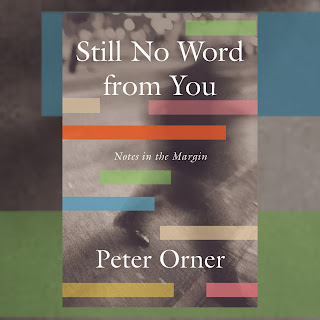Writing our life
I was talking recently to my friend, the MFA writer struggling to complete her thesis—a draft of a novel. She complimented me on my flash (which I haven’t done much of lately). Flash is about looking, seeing things through a writers eyes. When we wear our writer’s hat we understand that EVERYTHING is fodder for the pen. We just need to be looking, alert to what is going on around us.
Or not.
Lately I want to turn off that hyper sensitivity—especially when the news is bad, when there’s a mass shooting less than 3 miles from my house, when the suspect is at large, when my daughter texts me when I’m in bed to be sure and lock my door. I wanted to stay under the blankets and hibernate.
I want to shut out the world and squeeze my life down into a comfort zone of cycling, the baby, reading books. It doesn’t really allow for epic stories, a narrative arc, for something to happen.
Peter Orner has written two books of essays, Am I Alone Here and Still No Word From You, that are highly autobiographical and inspired by books. Somehow he weaves memories and books together to make . . . something. My friend complained that all she has is anecdotes (I often confuse the word with antidotes, the stuff that can make us better) and I told her about Orner. His stuff is all anecdotal.
How do you get an essay from—my mother had a friend who was married three times? Or about his parent’s bridge parties, or the fact that his grandfather wrote letters home from the war begging for something in return, still no word from you.
None of this is a story, yet we may be able to after reflection, spin from these memories (antidotes) a way, a why, an essence. What makes us find them significant in the rubble of all the other stuff we carry around in our heads.
Because as I read that anecdote about his multiple-married friend of his mother, I thought, about the hushed tones that surrounded many of my parent’s acquaintances. “He has cancer.” “Their daughter has a black boyfriend.” “She left college.” “Their son fled to Canada.” And, me, overhearing, am left to find out why this is so wrong, awful, sad, unacceptable. It was the 60s.
So that even today, like Orner, I reach for a book to try
and suss out the meaning, find context—the why.
See next post


Comments